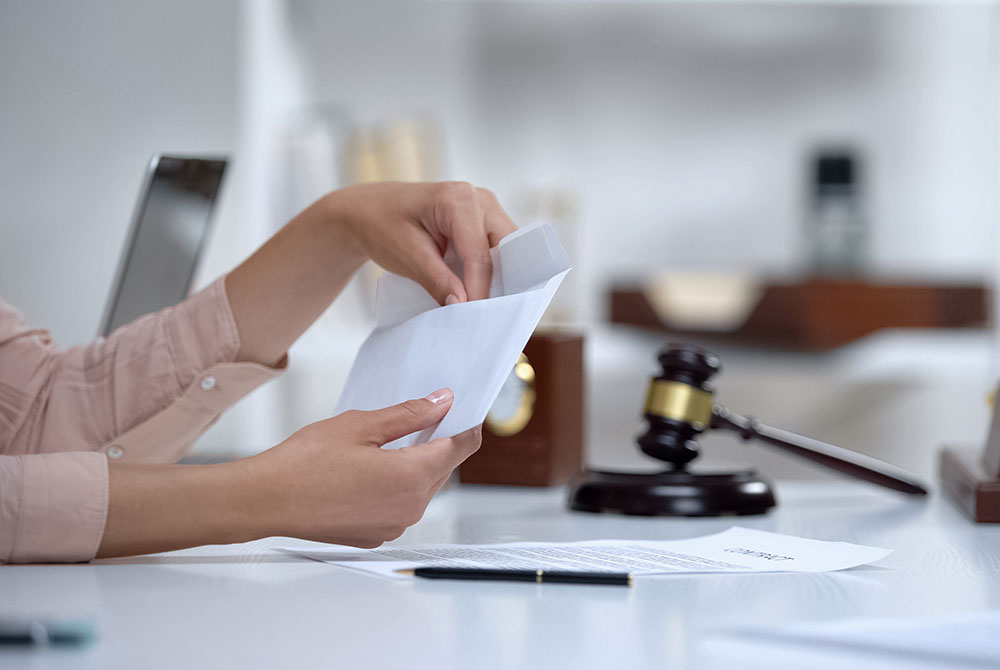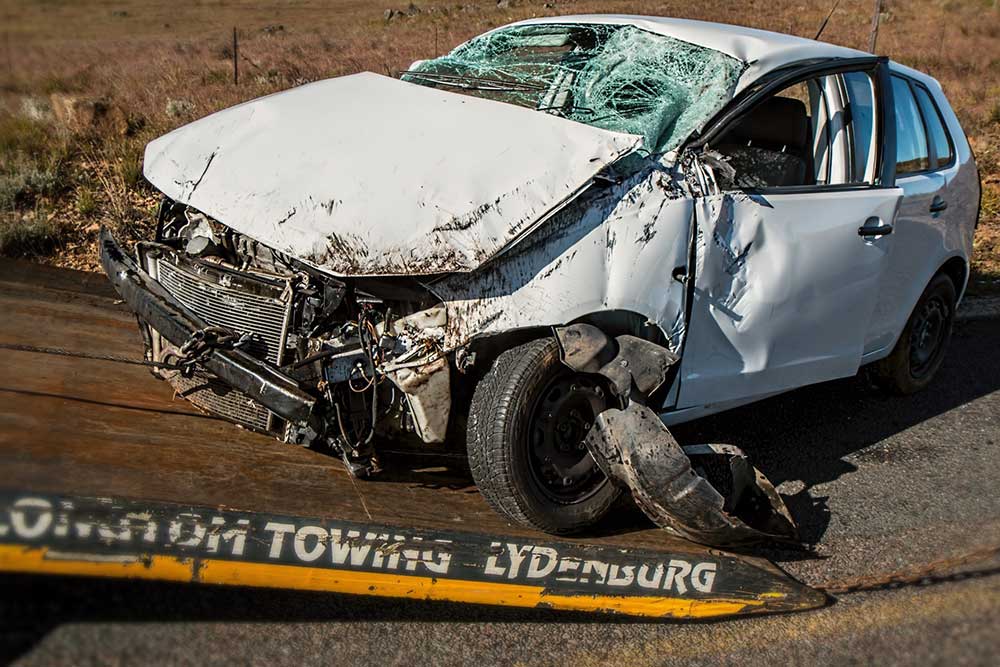
Uber crashes differ from regular car collisions, as there’s an extra layer involved — the rideshare company. People injured in an Uber accident often turn to our law firm, confused about who should cover their hospital bills and other damages.
That’s why, in this article, we share answers to the frequently asked questions about which insurance is applicable first, in which cases you may qualify for coverage beyond PIP benefits, and more.
Understanding Uber Accident Claims
An Uber accident claim is a request for accountability, a way for someone who has been hurt in a rideshare crash to recover the costs of medical treatment, lost wages, etc. It’s more complicated than car accident cases due to unique insurance policies.
In an ordinary car crash, the personal injury protection, or PIP, of each driver becomes involved. And as Massachusetts adheres to a “no-fault” rule, each person’s own insurance initially covers their medical bills and part of their lost wages, no matter who caused the car accident.
Uber crashes are more complex since several insurance policies come into play:
- The personal auto insurance of an Uber driver
- The commercial policy of Uber
- In some cases, another driver’s insurer.
Types of Insurance Coverage in Uber Accidents
When it comes to Uber crashes, what matters in the first place is whether the driver had their app active. The app links the driver to Uber’s network, and it determines which insurance is applicable. If a driver has the Uber app off, they’re considered just another motorist on the road, insured only by their own policy.
Because of this, Uber’s insurance coverages differ depending on circumstances:
- App off: Only the driver’s personal insurance applies.
- App on, waiting for a ride request: The company provides contingent coverage. It can be up to $50,000 per individual, $100,000 per incident for injuries, and also $25,000 for damage to property.
- Ride confirmed, or a passenger is already in the car: Uber’s $1 million liability policy comes into effect, covering damages for passengers and others impacted by the collision.
Who Can File a Claim After an Uber Accident?
Passengers and drivers of the rideshare and other vehicles can pursue compensation if they sustain injuries in an Uber collision. If you are a passenger, your case is generally more straightforward. You weren’t driving, and you didn’t cause the crash.
Drivers may also make car accident claims if the crash was caused by another driver. Other parties, such as pedestrians, could be included under Uber’s policy coverage.
What to Do Immediately After an Uber Accident
There are some actions you can take on the site and right after the incident. Here’s what to do if your Uber crashes to protect your health and rights:
Document the Accident Scene
If it’s safe for you, try to collect as many details as you can before leaving the place. Take photos of all cars’ positions, any visible vehicle damage, license numbers, road signs, and road conditions.
In the Uber app, take screenshots of your journey information, the driver’s name, vehicle details, time, and route. If a bystander saw the collision, kindly request their phone number and email address to get their statements later.
Seek Medical Attention
Even if you don’t have any significant symptoms, we still highly recommend at least an initial assessment by a qualified healthcare provider, as some injuries don’t display symptoms immediately. Medical evaluation also establishes a record of any injuries sustained and demonstrates how they’re connected to the accident.
Report the Accident to Uber and Insurance Companies
Next, report the car accident to Uber on this page or directly in the Uber app under the corresponding ride. If you have PIP coverage, get in touch with your own car insurance company as well, even if you weren’t driving. Once informed, the insurance staff could call for statements or paperwork. Before you respond, speak with a lawyer who can clarify how to reply and safeguard your claim.

Get a Free Case Evaluation
Filing an Insurance Claim
The next step is to start your insurance claim:
- Begin with your own policy. In the no-fault system of Massachusetts, PIP covers initial medical expenses and lost wages and comes into play first. If you don’t have this coverage, the policy of your Uber driver should provide you with PIP benefits as a passenger.
- Cooperate with Uber’s insurers once they open the claim. After Uber confirms the car accident, its insurance provider should create a claim file and contact you for information, like medical records, photos, and other evidence.
- Consult an attorney before you agree to the settlement. An Uber accident lawyer can coordinate between multiple insurers, handle communication with them, and make sure you receive fair compensation.
Common Mistakes to Avoid When Filing Claims
There are a few mistakes that can weaken your claim, and you may make them unintentionally. If you postpone medical treatment or informing insurers, they might doubt if your injuries are indeed linked to the car accident.
Another problem is the lack of proper documentation. Photos and health records may appear unimportant at first, but they can be invaluable for proving the extent of your injuries. Also, avoid apologizing, admitting your fault, and saying that you feel fine, because these statements can be taken out of context and used against you.
Working with Uber’s Insurance vs. PIP Insurance
As a passenger, you may use both PIP and Uber’s liability insurance. However, whether you qualify for compensation beyond your PIP coverage depends on certain circumstances.
Let’s first address PIP. In Massachusetts, PIP pays for medical bills and lost wages (partially), up to $8,000, regardless of who caused the car accident. Your PIP applies when you have your own auto policy. If you don’t, the Uber vehicle’s PIP will cover you as a passenger.
When it comes to liability coverage, Uber’s $1 million policy does not activate simply because PIP has reached its cap. Liability coverage depends on fault and trip status:
- Uber driver at fault and “on trip”: Uber’s liability policy may cover your remaining losses.
- Another driver at fault: That driver’s liability insurance comes first. If it’s not enough or not available, Uber’s uninsured/underinsured coverage may step in, given that the driver was “on a trip.”
Note that seeking non-economic damages is only possible if you meet Massachusetts’ tort threshold (e.g., >$2,000 in medical bills or a serious/permanent injury, like disfigurement or loss of a body function).
When and How to Sue Uber
While pursuing fair compensation, you may question whether suing Uber is an option — particularly when it feels as though the insurance companies are passing responsibility back and forth. Initially, it’s Uber’s insurance policy that responds to your claim. If the insurance company doesn’t address your claim fairly or denies liability altogether, the next logical step would be to file a lawsuit, usually against the driver or Uber’s insurance.
Legal Grounds for Suing Uber
There are a couple of cases where you may file a lawsuit against Uber directly. For this, you need to establish corporate liability. Personal injury attorneys with experience suing corporations can help you with this.
Legal grounds for suing Uber exist when, for instance, the company failed to perform due diligence in screening a driver or to properly respond to passengers’ safety problems. These cases are complex and will require a thorough legal investigation.
The Role of an Accident Lawyer in Uber Claims
An attorney can be indispensable in complex Uber cases, especially if you want to make sure you receive full compensation. A lawyer helps identify all potential sources of recovery, which may also include Uber’s commercial coverage, as well as uninsured or underinsured driver policies, depending on your case.
They communicate with insurance adjusters, prepare your case, which includes medical and financial documents, and settle on a reasonable amount. If insurers refuse to cooperate, an experienced attorney can take the next step, protecting your rights through legal action. Most importantly, there’s no need to worry about the personal injury lawyer cost from the start, as many law firms in Boston work on a contingency fee basis, and you only pay if your case is won.
Compensation and Settlement Options
Settlement options are another aspect that often concerns our clients. The answer here depends on how serious the injuries are and which insurance policies apply. But most passengers can seek several forms of compensation:
-
Medical expenses
All treatment and hospital costs, therapy, and any costs that may apply to long-term care related to your injuries.
-
Lost income
Wages missed during recovery and, if your injuries affect your work potential long-term, earnings that you will miss out on in the future.
-
Pain and suffering
The physical pain, emotional stress, and changes to your daily life that follow a car accident.
-
Other out-of-pocket expenses
The cost of transportation to appointments or damage to personal belongings.
How Settlement Amounts Are Calculated
The Uber accident settlement amounts depend on the severity of your injuries, the time it takes for you to heal, and the extent to which the incident alters your day-to-day life. The medical costs and lost wages are the basics.
The hardest part to quantify and incorporate into a settlement is the value of your pain, stress, and time away from family — non-economic damages. A good attorney can help you make sure your settlement reflects the actual impact the Uber crash has had on you.
Free Consultation: Getting Help After an Uber Accident
Injured in an Uber accident? Our law firm is ready to answer any questions you may have after the collision. Book a free consultation with Michael Kelly Injury Lawyers, and we’ll discuss your situation and offer guidance on your next steps and legal options.






